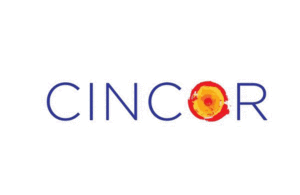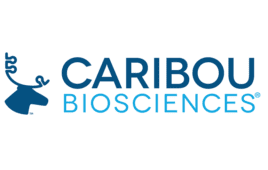
CinCor logo
The clinical-stage biopharma CinCor is developing baxdrostat, a highly selective, oral small molecule inhibitor of aldosterone synthase, for hypertension.
Catherine Pearce, chief operating officer and co-founder of CinCor, acknowledges that the company has received criticism for its plan to bring a new drug into the highly genericized blood pressure control market. “The reality is that cardiovascular disease is still the number one killer, and we’re woefully behind in treating patients to their optimal goals,” Pearce said.
Although many generic hypertension medicines exist, the current treatment landscape is less than ideal. “Sometimes patients feel worse taking medications. Or they’re not taking enough of the medication, and they’re still having a hard time getting to target,” Pearce said. Millions of people have treatment-resistant hypertension.
The complexity of heart disease is not the most challenging aspect. “It’s stroke,” Pearce said. “The result of not having well-controlled blood pressure is problematic from a quality of life standpoint.”
Recognizing that blood pressure is still a significant problem, CinCor determined baxdrostat could help address a large unmet medical need.
In the following interview, Pearce explains why she co-founded CinCor and provides perspective on her approach to leadership and how to encourage more women to enter drug development.
The responses have been lightly edited.
What inspired you to co-found CinCor?

Catherine Pearce, COO of CinCor
Pearce: In 2015, I started CinRx, which is an incubator. Before that, I was at Teva in a group repurposing generic medications. The goal was to make them better by improving delivery, making them longer acting and things like that, and then putting them back onto the market.
This kind of idea of repurposing things and making them better is not something novel, but only a few people were doing it. So my partner, Jon Isaacsohn, and I had the idea to come back to Cincinnati and start an incubator, which would translate from early-stage drug development. Many biotech/pharma companies don’t like to play in that early-stage space. But there is a tremendous need for translating preclinical drugs into human studies.
So we started this incubator called CinRx in Cincinnati. The thesis was to license forgotten or repurposed drugs that were not optimized and to put them into their own little companies. CinCor was one of six companies we had started between 2015 and 2019 when CinCor spun out to become a public company. So I went with CinCor at that time.
Getting baxdrostat from Roche took quite a long time. First, we at CinCor had to convince them that there was a good path for this drug. Baxdrostat was attractive because we understood clearly that if you turn off aldosterone, there’s already a RAAS pathway where blood pressure works. This was the last frontier into that pathway of getting drugs that turn off aldosterone production altogether. It took about two years to in-license, and through all the negotiations, and you got to the fundraising, which is the fun part.
Where is the drug now in terms of clinical trials?
Pearce: We are going into Phase 3 in the first half of 2023. CinCor is meeting with the FDA to present the results of our Phase 2 trials at the end of January. We hope to get some agency feedback on our trial design. It will be a global Phase 3 program in uncontrolled and resistant hypertension.
How would you characterize your role as chief operating officer at CinCor?
Pearce: We’re a pretty small team. We’re virtual in many senses. Some folks are in Boston. So we’re spread all over the place. But we communicate daily. This is as much of a passion for everyone on this team, as it is a job. We feel like we’re doing very important work for millions of patients who need this treatment therapy and can’t wait for it.
Every other day — sometimes every day — we’re talking about strategies. What’s the best patient population? What’s the best clinical trial design? Are we maximizing our opportunity with our vendors more than CROs? I think this is a constant when you’re a small company. You have to keep the communication going.
How much progress has the pharma industry made regarding gender equity?
Pearce: Although we’ve seen some progress in both gender equity and minorities coming up through the ranks, I still would say that there’s a big gap in terms of having those seats at the table. We don’t have to replace someone at the table. We need to make the table bigger to ensure we have voices all the way around.
It’s such a value-add to have different perspectives. When we deal with analysts, with other biotechs, and with pharma, there are not a lot of people that look like me. And indeed, the higher you get, the less diversity I tend to see. And we need to be very conscientious as an industry of making diversity as much of a goal as bringing good medicines to the market. Let’s make sure that we’re equitable in our employment practices and how we’re promoting women and minorities.
We should be prioritizing diversity because it’s the right thing for businesses. Many studies say that having a diverse board — having more voices at the table — improves productivity and makes businesses more profitable. So it’s not just a moral decision. It’s a business decision.
What are your thoughts on having a company culture prioritizing collaboration over competitiveness?
Pearce: That’s critical and biotech. It is not a competition when you’re talking about a very small group of people. The way that we win is if all boats float. I need my team, and I need them to feel empowered. This is not a race.
I believe in what I call servant leadership. I will get down in the trenches with you and do the work that needs to be done. And I expect you to come shoulder to shoulder to do the same. It has to be that way. You’ve got to eliminate this idea that somebody else’s work is somehow more important than yours. Every single person here matters. Sometimes, people in the industry get too focused on the publications and who gets to put their name on the marquee. There needs to be more emphasis on the people that do the day-to-day.
What can be done to encourage more young women to enter the pharma space?
Pearce: There’s a lack of education about pharma and biotech as a career pathway. You don’t go to school and major in drug development. It just doesn’t happen. There need to be more voices earlier on in the education process. This is an important career.
People often think of drug development in a very traditional sense. That is, ‘You have a lab coat.’ ‘You’ve got to go into organic chemistry.’ ‘You’ve got to do this, this and this.’
Almost nobody thinks about what it takes to manage the drug development process along the continuum. It takes a lot of pieces of knowledge in terms of how to bring all those disparate parts together for an outcome. We need to educate more on campuses and in nursing schools and say, ‘Drug development is a career path.’ Here’s another way to change lives and improve the healthcare system.
What’s your take on mentorship?
Pearce: Everyone needs a good mentor to check themselves and ensure that they are asking the right questions. A mentor can give you an interrogation about your style and how you might change and grow.
I’ve had wonderful mentors. I encourage people to reach out to someone they admire and ask for mentorship. You’ll be surprised. Some people might say, ‘I don’t have time for it this year.’ But a lot of people will say ‘yes.’
I’ve mentored a lot of students for two or three years. So we sit down and talk about how their school is going.
Mentorship is obviously good for the mentee. But mentoring is also good for the mentor. The mentee teaches you, too. So it’s a good investment in your time.
Mentorship is bi-directional. I’ve had students return years later who have gotten into the NIH. They have gone places. I think, ‘Wow, these little seeds you plant blossom into amazing relationships and long-term friendships.’
You can always build your network and meet interesting people. Moreover, it helps your work evolve.
Can you talk briefly about your educational background? You have a bachelors in biology, an MBA and a doctorate in health sciences?
Pearce: I’ve always been curious about the sciences in general. Biology is a general introduction to the sciences.
When I left school, the first job I got was as a sales rep at Roche, which is ironic since the drug we licensed is from them. So that was my first job — promoting a hypertension asset. So it’s come full circle.
I’ve worked my way back into the early phase of development. I first saw how a drug is marketed, then saw how it’s researched, then saw how you pull it out of the lab. My education has been supportive of that along the way. I first learned the science and a little bit about the business.
The doctorate has a concentration in global health. It is more like epidemiology — really understanding that there are disparities in the healthcare system. My degree focused a lot on research in Uganda and other places where they don’t have access to medicines. I looked at what that does to a culture and how we could change that in the future with a global health strategy.
Someday, maybe I’ll end up with the World Health Organization. That would be a dream for me. Medicine should be available to everyone. In getting a doctorate, I learned how unequal the landscape is. I saw firsthand that you couldn’t get morphine to kids who have cancer.
In many cases, people don’t have access to basic drugs. Somewhere along the way, the system has to address that. There’s got to be programs that ensure access to life-saving medicines. Every pharma that’s developing drugs has to think about making medicine available.
The pharma industry sometimes gets a bad rap for being greedy. But at the heart of it, the people that love this job want to do it because they want to treat, say, their grandparents or they’re in it for global benefit. So the next generation in biotech and pharma has got to find a way to address this disparity in health care. Medicine is a basic human right.
What do you consider your most important leadership skills?
Pearce: I’m generous with my time and enjoy working with my colleagues. I will lead with a consensus. I don’t assume that my opinion is the right one. I will take a lot of viewpoints before we decide on the direction. I prioritize having the ability to listen. We listen to people — not just wait for them to say something and then ignore them. We get to the heart of their motivation. I think I’m a very good listener. I’m good at discernment and have good judgment. I would say that I’m responsible in my leadership. I take everybody’s opinion and treat them well. I promote people and give them time off. I understand people have families, and I like to roll up my sleeves and work alongside them.
The older I get, the more I appreciate how tech-savvy the next generation is. They know how to do all these things that I don’t know. And I think any leader must say, ‘The next generation may not have all of these experiences related to drug development, but they are smarter in certain aspects.’ There’s a responsibility to look to the next generation and respect their knowledge. I hear people put down Gen X, Gen Z, Millennials, or whatever. That’s a negative approach to take. Instead, we should say, ‘Listen, I don’t understand what they’re doing with this particular thing, but let’s find out.’ Having experience plus new technology can drive innovation. So let’s give them a place at the table.
Biotechs can be the slowest to adopt new technologies and things like that. And we need to get better at that as an industry. When you think about CRISPR, gene editing and all the things that have happened from an innovation standpoint in our industry, it’s impressive. We’ve got a lot of great technology that we could use to make medicines better.
Filed Under: Cardiovascular, Women in Pharma and Biotech





Tell Us What You Think!
You must be logged in to post a comment.